ACT I
In a provincial Russian town, the clerk Varla Kudrjas rhapsodizes over the afternoon view of the river Volga. Two men approach the overbearing merchant Dikoj and his nephew, Boris Grigorjevic, When they discover that Kabanicha, matriarch of the neighboring Kabanov family, is not at home, Dikoj stalks off, leaving Boris to explain to his friend Varla why he puts up with his uncle’s abuse: his parents are dead, and in order to collect his inheritance, he must treat his uncle with respect. As the Kabanovs return from Vespers, Boris confesses to Varla chat he is secretly in love with Káťa, the young wife of Tichon, Kabanicha’s son. The two men depart as Kabanicha berates Tichon for his lack of attentiveness. He tries to please her, as does Káťa, who tells her mother-in-law they love and respect her. The two women enter the house as Tichon’s temper snaps at being told he spoils his wife. Tichon complains to Varvara, foster laugher of the family, who retorts that he would rather drink and forget his troubles than stand up for Káťa’s rights,
Kara tells Varvara how free and happy she fell as a child. She admits she has fantasized about having a lover. Before she can say more, Tichon comes to say goodbye. He is leaving on a short trip. Káťa begs him not to go, or else to take her along, but he refuses. Kabanicha says it is time for Tichon to leave, adding that he must tell his wife how to behave. He dutifully repeats that Káťa must treat Kabanicha like her own mother, then hurries away.
ACT II
Kabanicha criticizes Káťa for not making a display of grief over Tichon’s absence. After she has left, Varvara shows Káťa the key to the gate behind the garden. She plans to meet her lover there and hints chat Káťa might want to do the same. Káťa hesitates but decides that fate has willed it; she will meet Boris. Kabanicha reenters with che drunken Dikoj, who complains that people take advantage of his softheartedness. As he demonstrates, blubbering, Kabanicha primly tells him to get hold of himself.
Waiting for Varvara, Varla sings a song about an independent-minded girl like her. To his surprise, Boris appears, having received an invitation to a rendezvous. Varvara arrives and, with Varla, heads for a walk by the river, When Káťa appears, Boris proclaims his love. She is hesitant at first, foreseeing ruin, but finally her long-repressed feelings pour out, and she embraces him. They too go for a walk. As the rapturous voices of the second couple are heard, Varla and Varvara call to them that it’s time to go home.
ACT III
Taking shelter from an approaching storm, Varla and a friend, Kuligin, are joined by other strollers in a ruined building near the river. When Dikoj appears, Vana tries to tell him about a new invention, the lightning rod, but chis only angers Dikoj, who insists storms are not electricity but God’s punishment. When the rain lets up, people start to leave, and Varla runs into Boris and Varvara. The girl reports that Tichon is back, and Káťa seems very upset. Kabanicha approaches with Tichon and Káťa. Bystanders at first assume that Káťa is frightened by the storm, which has regained intensity, but she makes a confession to Tichon in front of everyone, saying she dallied with Boris during her husband’s absence. Then she runs out into the tempest.
As evening draws near, Tichon looks for Káťa along the river bank. Varvara and Vana decide to escape to Moscow, where they can lead a life of their own. As the searchers move off, Káťa appears, aware that her confession served only to dishonor her and humiliate Boris. He wanders in, surprised to find her, and they embrace. His uncle is sending him away to another town, but what will become of Káťa? Her mind wandering, she bids him farewell. As he walks off in sorrow, she ponders how nature will renew itself over her grave, then throws herself into the river. On the far bank, Kuligin sees her jump and calls for help. Tichon rushes back, followed by Kabanicha, whom he blames for Káťa’s self-destruction. Meanwhile, bystanders fetch a boat. When Dikoj brings Káťa’s body and lays it on the ground, Tichon flings himself down, sobbing Coldly, Kabanicha bows to the bystanders, thanking them for their help.
Place: The Russian town of Kalinov on the shores of the Volga River
Time: The 1860s
Act 1
Vána Kudrjás admires the view of the Volga River, which amuses the more literal-minded housekeeper of the adjoining Kabanov estate. Two men approach, Dikoj and his nephew, Boris Grigorjevic, where Dikoj is berating Boris. Dikoj learns that Kabanicha, the Kabanov family matriarch, is not at home. Dikoj leaves, and Boris explains to Vána Kudrjás why he tolerates the abuse: his parents are dead, and to be able collect his inheritance, he must respect his uncle no matter what his uncle says to him. Boris also tells Vána Kudrjás that he is secretly in love with Káťa, the young wife of Tichon. Káťa appears and Kabanicha reproaches her son Tichon – Kata's husband – for his inattentiveness. Tichon and Káťa try to calm her down, but Kabanicha will have none of it, telling Tichon that he spoils Káťa. Tichon complains to Varvara, the family's foster daughter, who rebukes him for retreating into drinking more than defending Káťa.
In the house, Káťa tells Varvara of her happy childhood, and dreams of having a man who truly loves her. Tichon enters to say good-bye, as he is journeying to Kazan on business, for Kabanicha. Káťa asks to accompany him or for him not to go, but he insists. Káťa then asks him to make her swear an oath to speak to no strangers during his absence, which puzzles Tichon. Kabanicha announces that Tichon must go, but not before instructing Káťa how to behave in his absence. Tichon dutifully says that Káťa must treat Kabanicha like her own mother and always act properly. He bows to Kabanicha and kisses her and Kát'a before he departs.
Act 2
The women are working on embroidery. Kabanicha criticizes Káťa for not appearing more sorrowful at Tichon's absence. After Kabanicha leaves, Varvara shows Káťa the key to the far part of the garden. Varvara intends to meet Vána, her lover, there. She hints at the same suggestion for Káťa, and puts the key in her hand. Káťa is hesitant, but then surrenders to fate and will meet Boris. She steps outside as evening comes on. Kabanicha reappears with Dikoj, who is drunk and complaining that people take advantage of his softhearted nature. However, Kabanicha chastises him.
Vána Kudrjás is waiting for Varvara in the garden. Boris then unexpectedly appears, after receiving a message to go there. Varvara arrives, and she and Vána go for a walk by the river. Káťa then appears, and Boris declares his love for her. She is at first worried about social ruin, but finally she reciprocates, confessing her secret feelings for him. They embrace and themselves leave for a walk. Vána and Varvara return, as she explains her precautions in case Kabanicha suddenly appears. Káťa and Boris are heard in wordless, ecstatic duet as Vána and Varvara say that it is time to return home.
Act 3
Ten days later
Vána Kudrjás and Kuligin are strolling near the river when an approaching storm causes them to take shelter in a ruined building. Other people join them, including Dikoj. Vána tries to calm Dikoj with scientific explanations about a new invention, the lightning rod. However, this only angers Dikoj, who insists that lightning is not caused by electricity but is the punishment from God. The rain dies down, and people start to leave the shelter. Vána meets Boris and Varvara. Varvara says that Tichon has returned, and Káťa is very agitated. Kabanicha arrives with Tichon and Káťa. The storm returns, and people assume initially that this is what upsets Káťa. However, she confesses to Tichon in front of everyone her assignation with Boris during her husband's absence. Then she runs out into the storm.
Evening approaches after the storm has ended. Tichon and a search party are looking for Káťa. At first among the party, Varvara and Vána then decide to leave the village for Moscow and start a new life. They leave, and as the searchers continue, Káťa appears. She knows that her confession has dishonoured her and humiliated Boris. She feels tormented and wants to meet Boris one more time. Boris appears and sees her, and the two embrace. Boris says that his uncle is sending him away to another town, but asks her what will become of her. As her sanity deteriorates, she first begs him to be allowed to accompany him, then insists that she could not and bids him farewell; he leaves in sorrow. After thinking of how nature will continue to flourish over her grave, Káťa throws herself into the river. Kuligin sees this from the far bank and calls for help. Tichon appears, followed by Kabanicha. Tichon tries to help Káťa but is restrained by Kabanicha; he blames her for Káťa's suicide. Dikoj appears with Káťa's body and lays her on the ground. Tichon cries over the body as, without any emotion, Kabanicha thanks the bystanders—or, as often done, the audience—for their help.


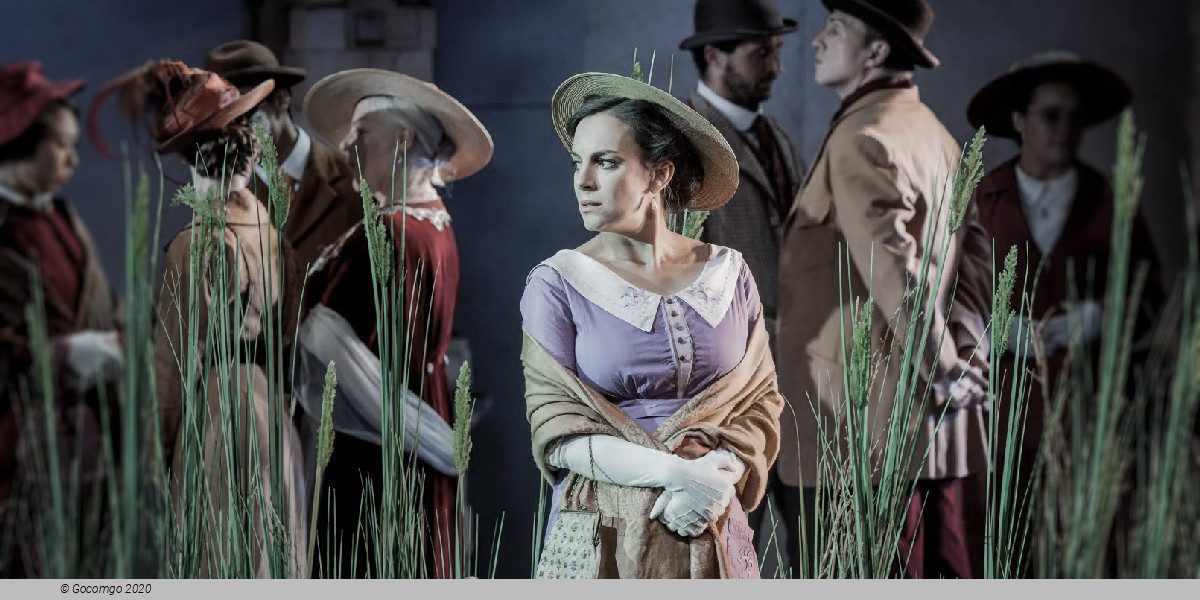
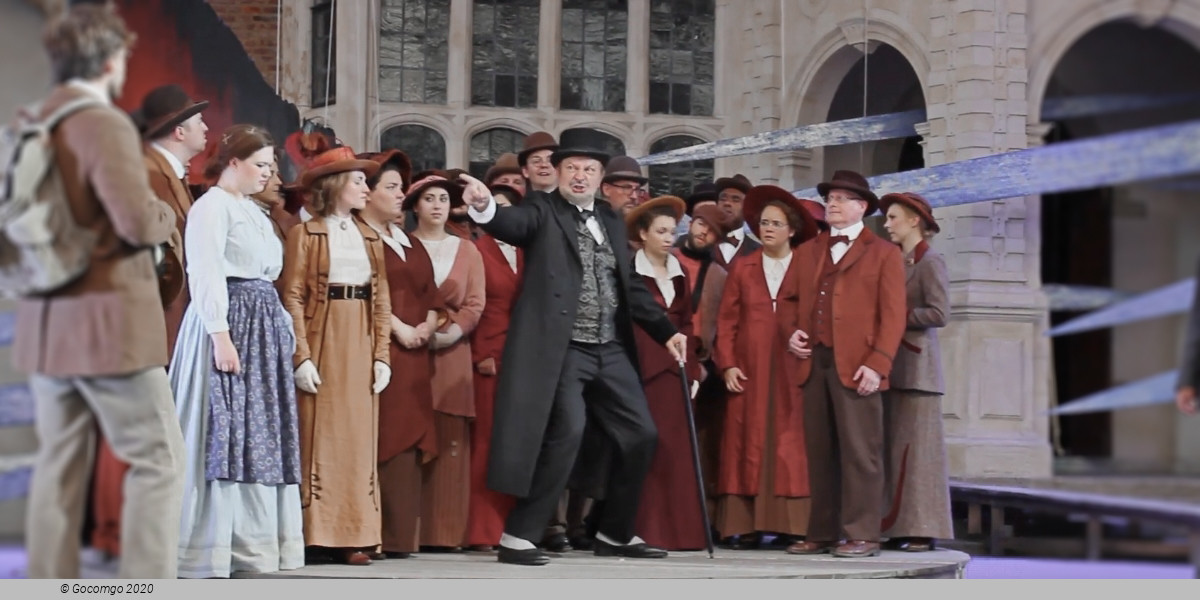
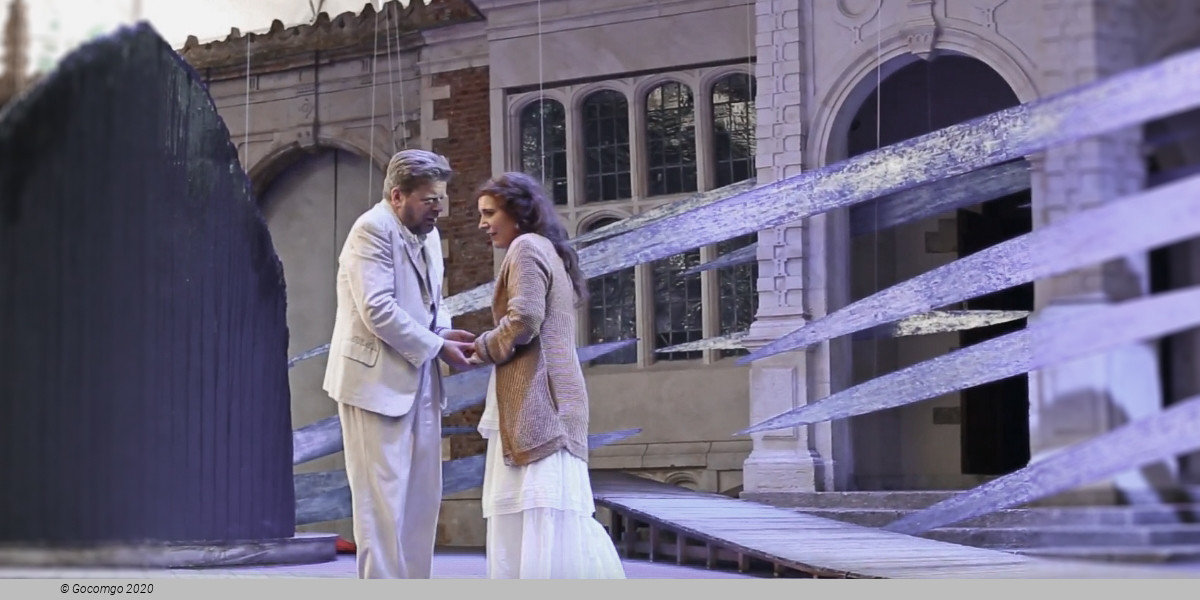
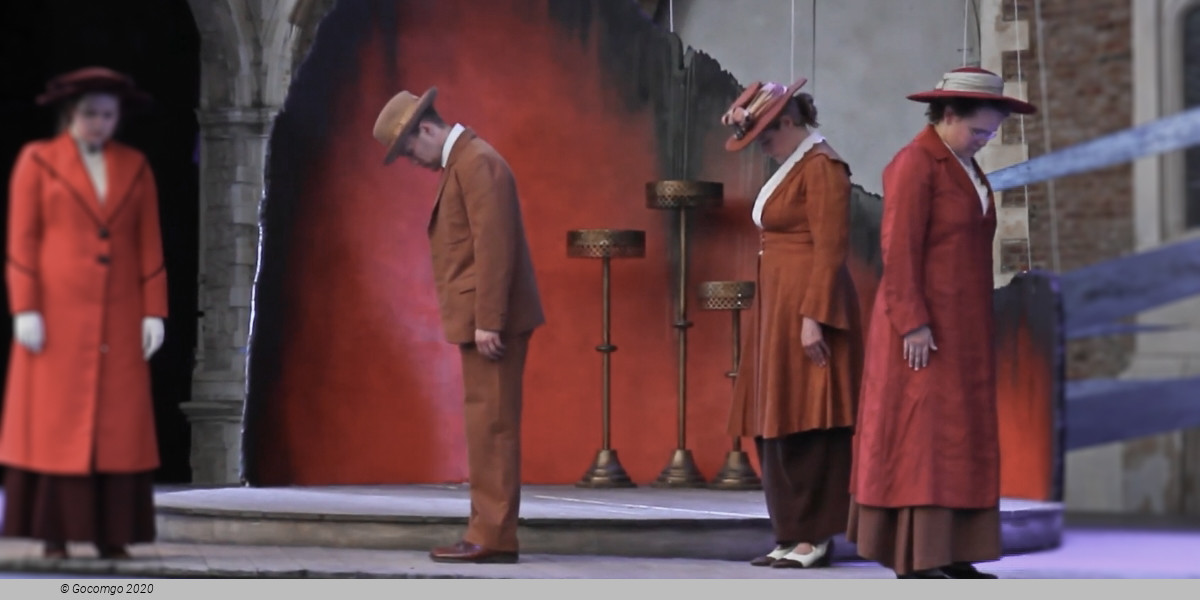
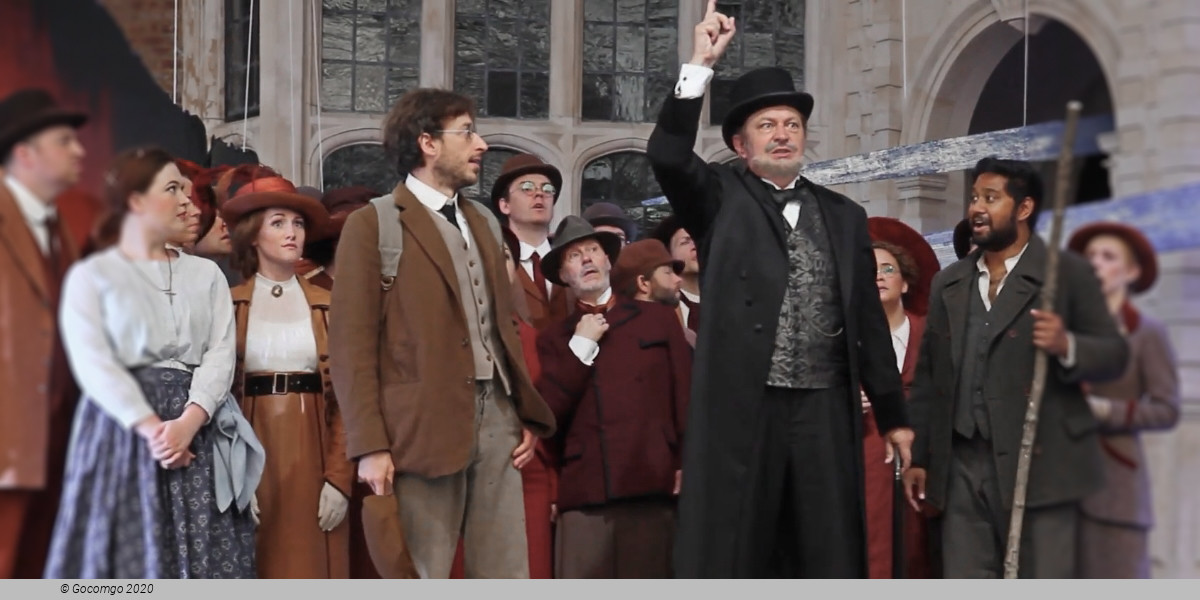
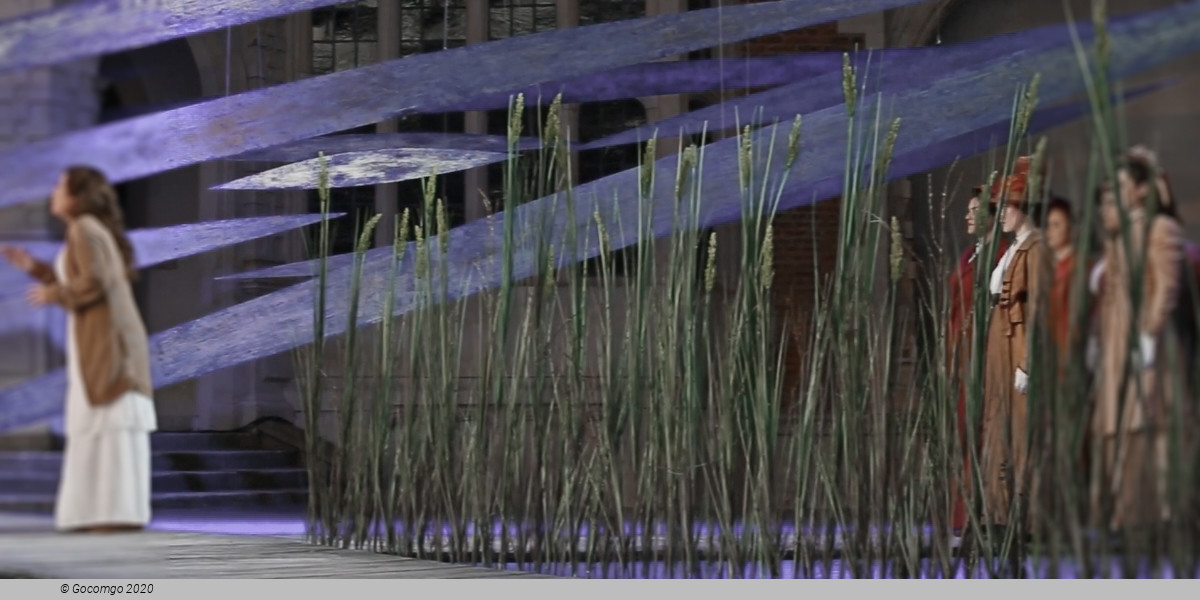
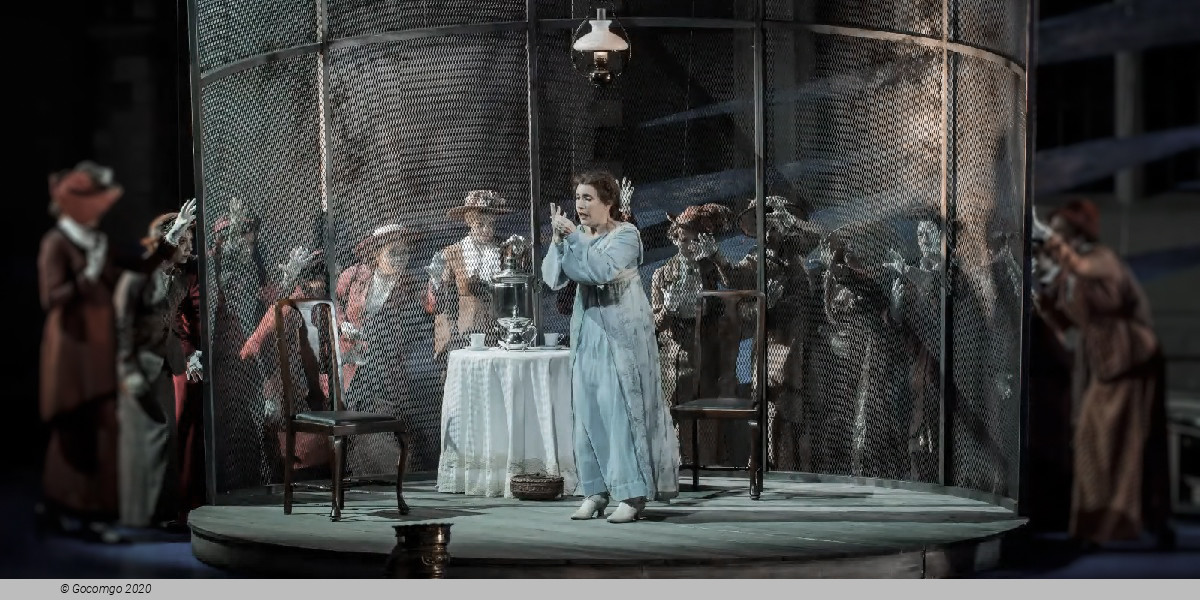
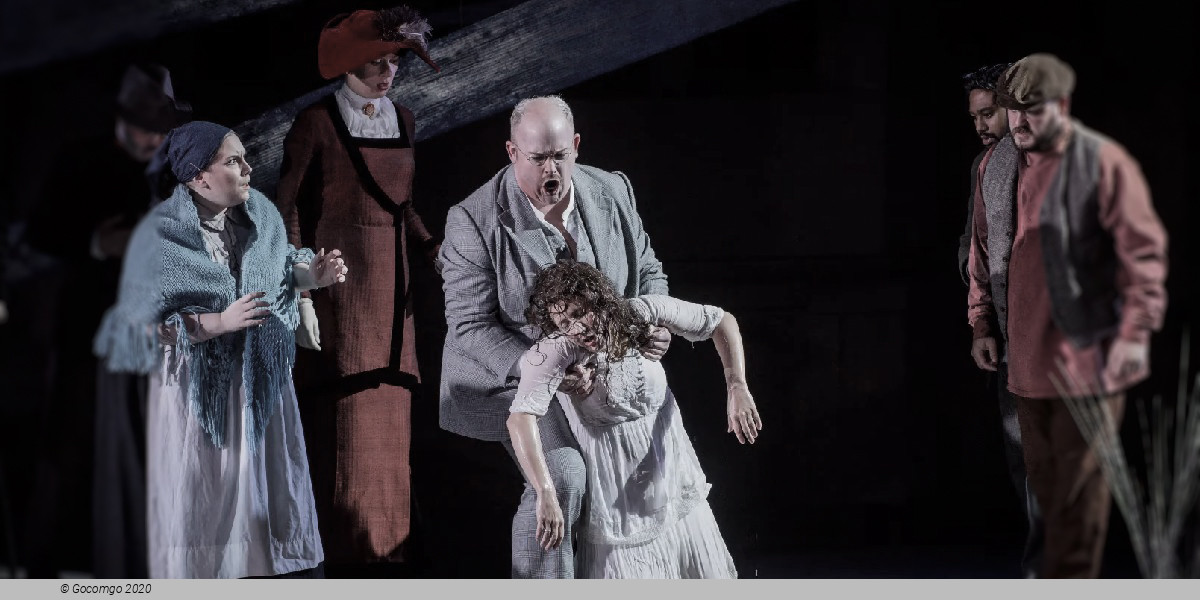
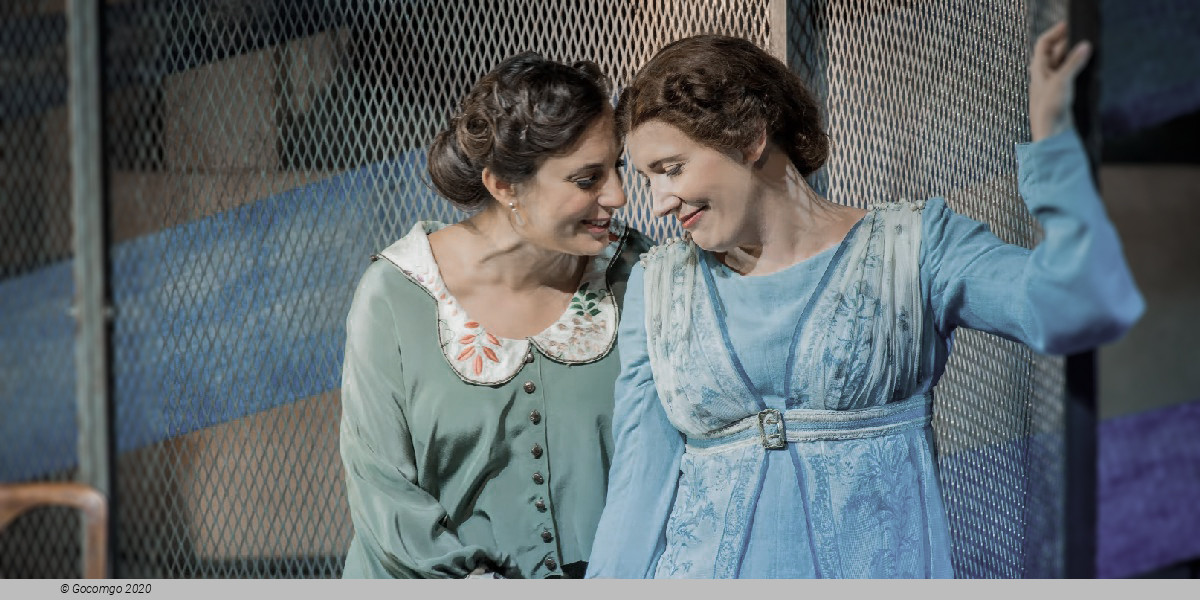
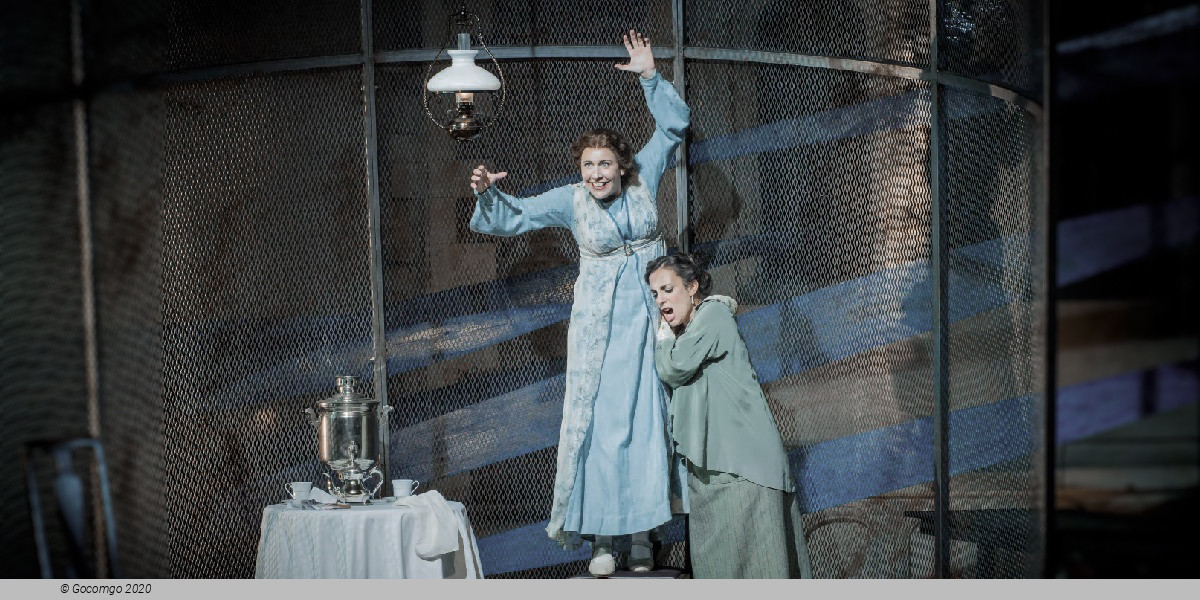
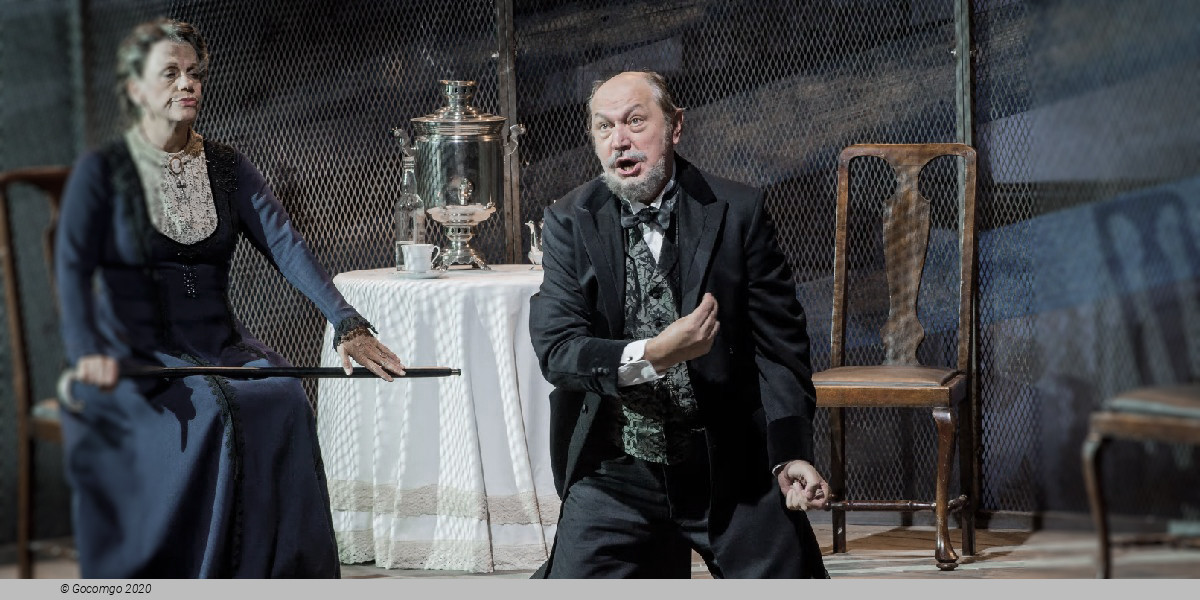
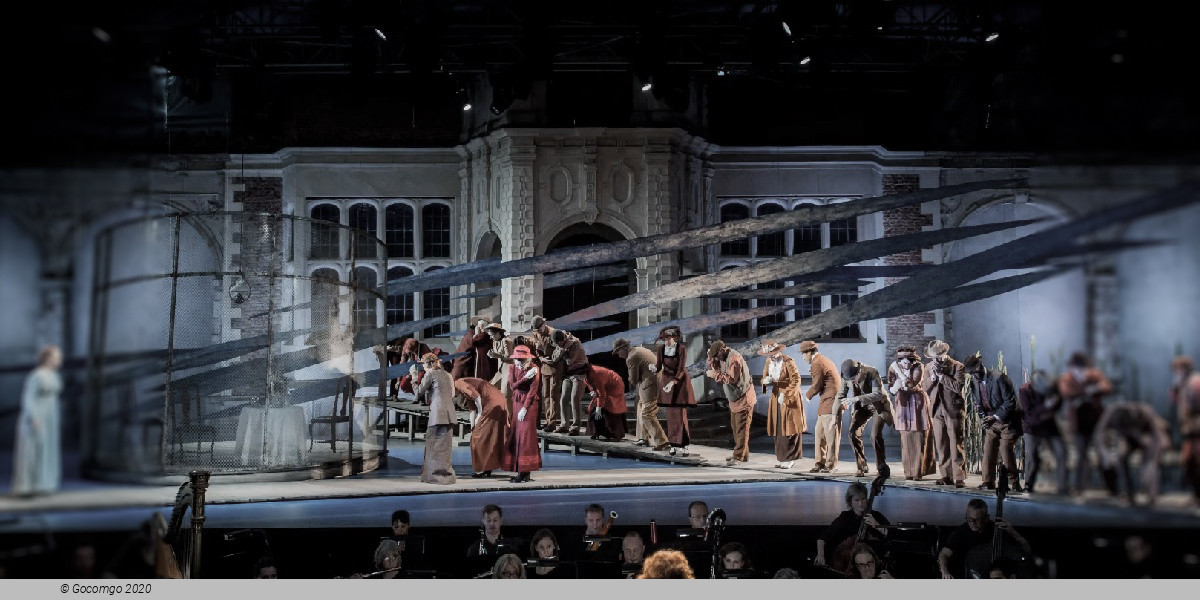
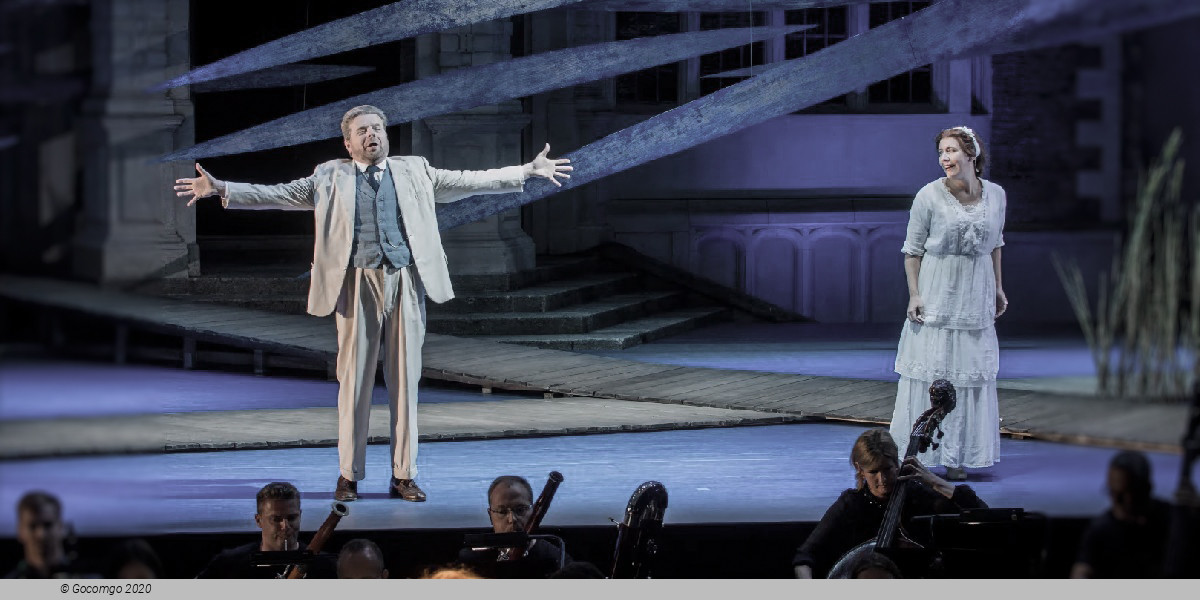
 30 Lincoln Center
30 Lincoln Center